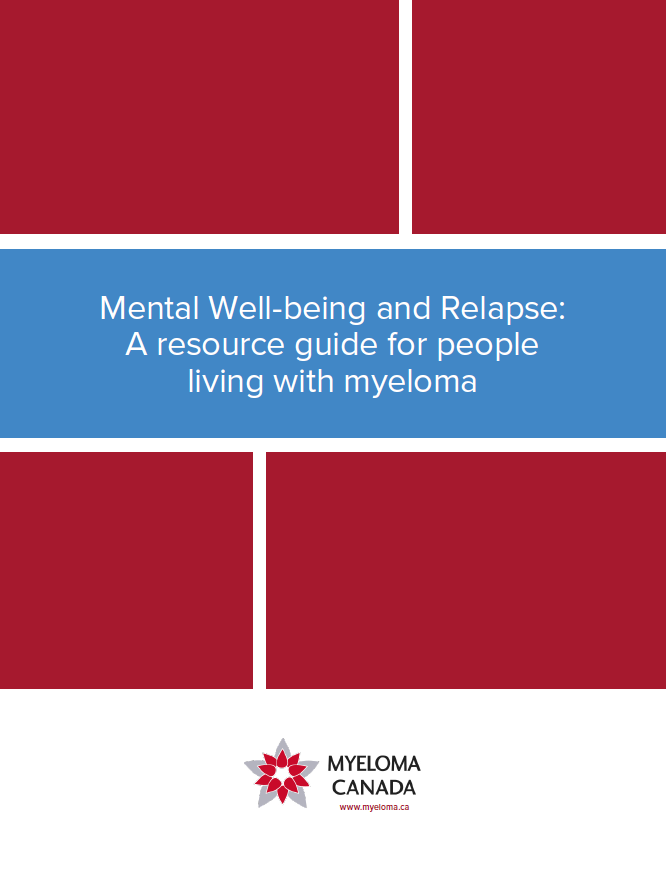
There is no “right” or “wrong” way to react
Being diagnosed with myeloma can leave you feeling overwhelmed, in shock, numb even. You may sometimes find yourself overcome by strong emotions when you least expect it. Or you may actually be relieved to finally have an explanation for all the symptoms you’ve been experiencing.
What’s important to know is that whatever you’re feeling is natural and completely understandable. You’ve been given a lot to process and to come to terms with. And there is no “right” or “wrong” way to react. The diagnosis affects everyone differently.
At first, you may feel that being diagnosed with myeloma changes everything. But it’s possible for many things in your life to stay the same. Not all changes that occur will be permanent.

What you can do
Understanding myeloma, your treatment options, and what your life might be like after your treatment can go a long way toward easing the fear, anger, and frustration you may feel in the face of the unknown.
Reaching out to those around you and sharing what’s on your mind can often be helpful, not just for you, but for them too. They may be thinking and feeling some of the same things you are. Opening up to each other may contribute to bringing you even closer.
Keeping a diary can also be a great way to help you clarify and express your thoughts and feelings. It can also provide you with a potentially useful record of your treatment.

Sign up for our monthly e‑newsletter Myeloma Matters
Get the most up-to-date news and information on myeloma, the Canadian myeloma landscape, and the Canadian myeloma community.

You’re not alone
Find the right type of support for you: There are more than 45 volunteer-led, community-based support groups across the country. You can also join our private virtual support groups, accessible from anywhere at any time. Plus, our peer-to-peer support program lets you talk confidentially on a one-to-one basis. Each option provides you with the ability to connect with others who understand the journey you’re on.

“Mental Well-being and Relapse: A resource guide for people living with myeloma” is a guide to psychosocial oncology support available in Canada by province.

Complementary therapies may help you and your loved ones with psychological and emotional well-being. Complementary therapies may also give you a feeling of greater control over your journey.
If your sexual relationship is important to you, talk to your partner about how you feel. You may find it difficult to bring up the subject, but it’s an important conversation to have.
It’s easy for someone to feel rejected when a sexual relationship changes or ceases.
Be open and honest with your partner and try to maintain a level of closeness, even if you do not have sex. Discuss with your partner what level of intimacy feels comfortable, and, in time, you may gradually return to a more physical relationship.
Don’t be too embarrassed to talk to your doctor or nurse about issues you may be having with your sexual relationships. You may not be used to these types of conversations, but they are. (If it helps, just tell yourself that there’s probably not much they haven’t heard already!) They may be able to prescribe a treatment that can help, if appropriate.


